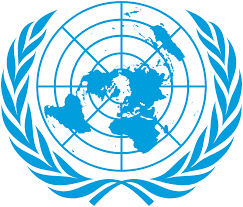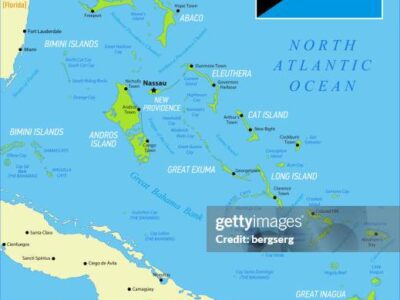Where Should The United Nations Move?
The Trump Administration has abandoned the world, and the world should return the favor — with a climate twist.
 You might have missed it amidst the sewer hose of feces that Donald Trump’s regime is spraying on the nation and the world, but the United States announced last week that it will not extend a visa to Palestinian Authority President Mahmoud Abbas to attend the United Nations General Assembly.
You might have missed it amidst the sewer hose of feces that Donald Trump’s regime is spraying on the nation and the world, but the United States announced last week that it will not extend a visa to Palestinian Authority President Mahmoud Abbas to attend the United Nations General Assembly.
I’ve been a Zionist all my life, and remain one. But this is outrageous.
Apart from being a massive gift to the PA’s rival, Hamas, and Hamas’ alter ego, Benjamin Netanayahu, it basically breaks Section 11 of the 1947 UN Headquarters Agreement, which prohibits US authorities from restricting access of UN members’ representatives, UN officials, and officials of UN “specialized agencies.” It also breaks the implicit contract that puts the UN in the United States, which is that will allow access of all countries to the UN. The United States has broken it before, banning Yasser Arafat in 1988 (and five years later Bill Clinton hosted him at the White House). It also used the Foreign Relations Authorization Act of 2012 to deny a visa to Iran’s nominee to be its ambassador to the UN, Hamid Aboutalebim, because he participated in the seizure of the US embassy in Iran in 1979. But Abbas is nowhere close to that.
The whole episode does raise a broader question, however: should the United Nations even be in the United States anymore?
It certainly should not during the Trump Administration, which rejects basically all forms of international institutions. It essentially is attempting to use US power to destroy the global economy through tariffs, and Trump himself obviously would like to withdraw from NATO. It is no accident that the recent summit in China did not even bother to invite the United States, but still got a good turnout. Foreign tourism has collapsed, because no one wants to risk being imprisoned by ICE and left to rot in detention. (I actually doubt that the 2028 Olympics will happen). The United States has withdrawn from the WHO and UNESCO. It is simply a matter of time before American simply refuses to pay its UN assessment.
Put bluntly, the United States under Trump is a rogue state. No one wants to come here, and no one should.
But this is not simply a Trump problem: now, it is an American problem. Trump has remade the entire Republican Party is his image. The next Republican President will not change this position, even if we remain in NATO. Trump is now baked into the system for the foreseeable future, and also baked into the expectations of the rest of the world. As French Foreign Minister Benjamin Haddad, a centrist, noted on the eve of the 2024 election, “We cannot leave the security of Europe in the hands of voters in Wisconsin every 4 years.” And as long as the Republican Party might remain in power or return to it, that is where we are.
The world is leaving the United States behind, and this means that we need to seriously consider the permanent removal of the United Nations from American soil. The question, of course, is where?

The obvious candidate is Geneva, which can host and already does host a large number of UN institutions and has the capacity to scale up quickly. But as a symbolic move, it seems to me to go in the wrong direction: it signals an attempt to return to the prewar world (Geneva hosted the League of Nations before World War II, which is not a great precedent). We should be looking beyond the United States and Europe.
What’s more, over the next few decades, one global issue – climate change – will be by far the most important. It is the greatest crisis the planet has ever faced. The only one equivalent is nuclear war, which has no particular geographic location.
So I believe that there should be three central considerations for the UN’s new home:
1) Stable Democracy. The United States has abandoned liberal democratic institutions. But strong international institutions rest on norms of democracy, liberalism, and the rule of law: nations can at least sometimes talk out their differences and work out compromises. It is very often not true, but international institutions reject the idea that world politics is simply the war of all against all. (Even Hobbes didn’t think that a states system was like the state of nature.
2) How About the Global South? It makes sense to move the UN away from the usual suspects. There is precedent for this: the United Nations Environment Programme is based in Nairobi, Kenya. But there is also a challenge: it has to be close enough to many states so that nations can have diplomatic staff either there or close by. This has been something of a headache for UNEP, because many small states lack diplomatic representation in Nairobi.
3) It must be at severe climate risk. I mean, we’re ALL at risk of climate impacts, but some are more at risk than others. If UN headquarters is at risk of climate impacts, that will make more people sit up and take notice. In one sense, it will force them to do so. It’s no secret, of course, that many of the most threatened nations are among the world’s poorest. If climate will be at the front of the agenda, then it should be at the front of the concern of the host.
And thus, I propose that the new host of the United Nations should be….

Nassau, The Bahamas!
Don’t laugh. Importantly, it best satisfies the three criteria that I just set forth. It is in the Global South, it is a very stable parliamentary democracy (more stable and more democratic than the United States), and importantly, it has a lot of climate risk: it currently ranks 118th out of 187 in terms of climate vulnerability. It also ranks, however, 62nd in terms of preparedness. It seems to be doing a decent job.
I considered three other countries that could host on my criteria, but each of them don’t quite measure up:
Mauritius. It would be great to have the UN in an African country, and Mauritius is not only a stable democracy, but as an island nation, it also is at serious climate risk. But the UNEP problem rears its ugly head: Mauritius isn’t close to anywhere – not even to the African continent. It would be too much of an imposition for too many other nations. The Bahamas are close to many other nations, which means that it would be easier for diplomatic staffs.
Uruguay. Uruguay seems to be one of those unsung heroes: a really stable democracy in a part of the world without one. But it lacks the sort of climate vulnerability that would make it ideal. (This also goes for Costa Rica, another favorite).
Maldives. The Maldives might be the most climate vulnerable country in the world, and it would be wonderful to have South Asia be the host. But the Maldives is anything but a stable democracy.
—
So there it is. Start making your plans to spend time in the Bahamas over the next couple of decades.
Or, you know, New York could just secede.
Reader Comments
One Reply to “Where Should The United Nations Move?”
Comments are closed.






I share your frustration with our domestic political situation.
I think they will cave soon, and give the visas. It’s the easiest path.
Meanwhile, the Olympics should be placed permanently in Greece and should be every 4 years again. (Well, unless there isn’t enough snow there. Maybe it needs to be in 2 places. I don’t really care, they’re mostly not amateurs anymore. I’m a Nolympian now. But I remember when it was fun.)